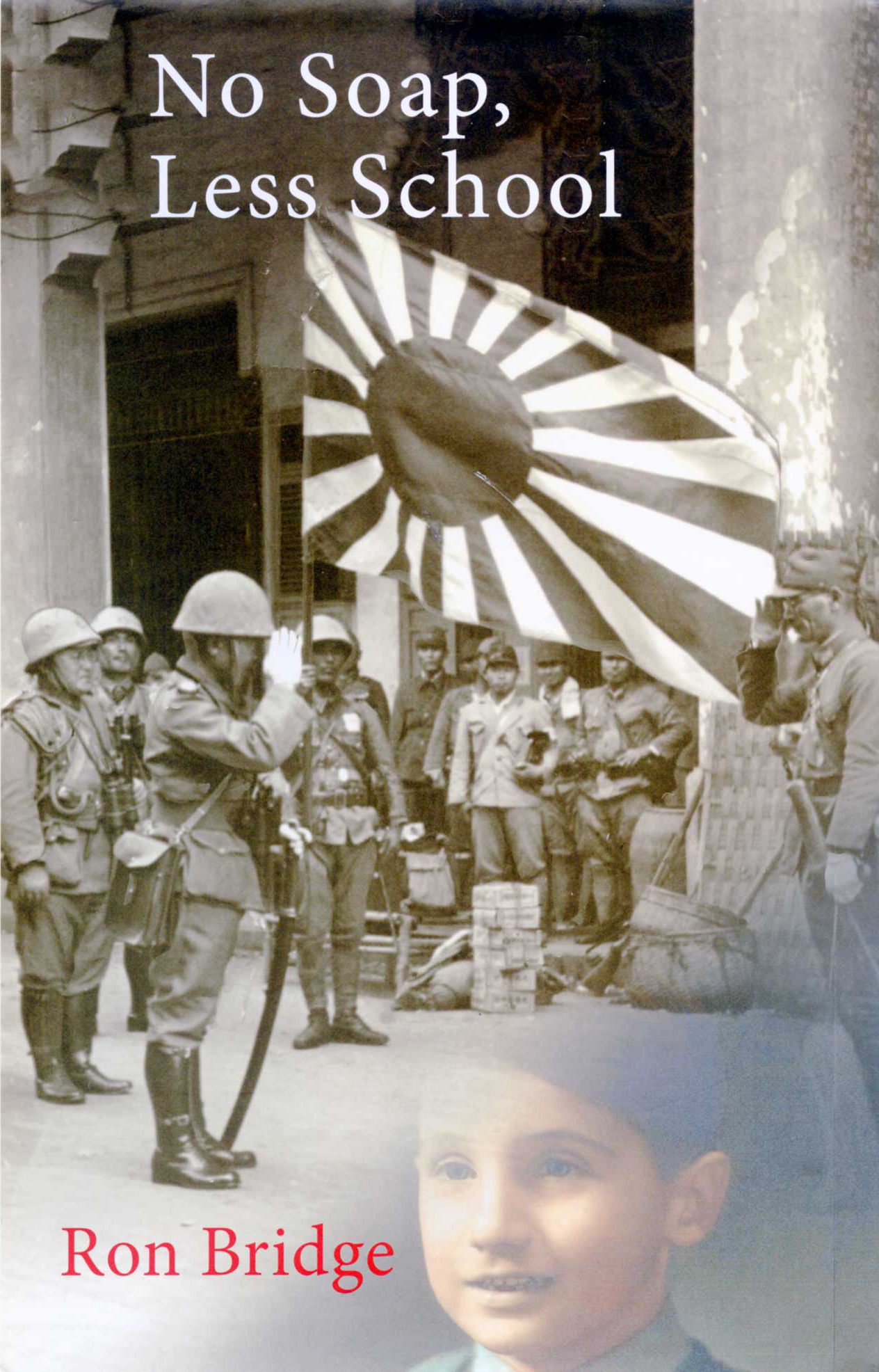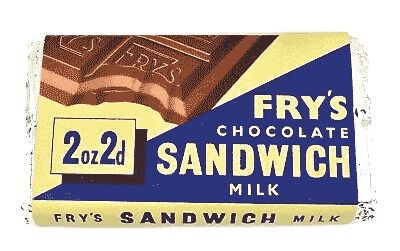
- by Ron Bridge
Chapter 11
[excerpts] ......
 The next week heavy rain fell each day. But then on 21 August 1944 Mr Eggers made an unscheduled visit, escorting 400 American Red Cross parcels. A big parcel contained four parcels each about 12 inches (30 cm) square and 6 inches (15 cm) deep.
Eggers said they were for all the camp but had no detailed instructions. The American Missionaries claimed that they were American Red Cross parcels for Americans, and that the British could make their own arrangements and obviously had not. Not that any American in the camp had had anything to do with the organisation of the parcels. Many of the individual Americans shared out some of the contents with their non-American friends, as they could not accept the policy of their camp leaders.
The next week heavy rain fell each day. But then on 21 August 1944 Mr Eggers made an unscheduled visit, escorting 400 American Red Cross parcels. A big parcel contained four parcels each about 12 inches (30 cm) square and 6 inches (15 cm) deep.
Eggers said they were for all the camp but had no detailed instructions. The American Missionaries claimed that they were American Red Cross parcels for Americans, and that the British could make their own arrangements and obviously had not. Not that any American in the camp had had anything to do with the organisation of the parcels. Many of the individual Americans shared out some of the contents with their non-American friends, as they could not accept the policy of their camp leaders.
[excerpts] ...
...
On 25 January 1945 another 400 big American Red Cross parcels arrived. Captain Tsukiyama said they were to be divided, one small parcel per person. Which meant, I thought, that the Bridge family would get one big parcel containing four small parcels. Terrible rows began from the Americans, whose stance again was: ‘They are US Red Cross parcels paid for by US taxes hence not to be given to foreigners.’
I overheard Dad saying that the ringleaders of the American rebellion were both tobacco experts who had lived in China for a number of years with their Russian wives. He doubted if they had ever been in America for long enough to pay a penny in tax there.
Captain Tsukiyama said he would go to Qingdao and clarify the distribution of parcels; meanwhile, parcel distribution was on hold. The atmosphere in the camp grew poisonous; people vented their anger by resorting to fists and flinging mud at the Americans. I kept a low profile while these exchanges were going on because I could see no advantage in getting involved.
Four days later Captain Tsukiyama returned from Qingdao to say that instructions from Tokyo were that a small parcel was to be issued to each inmate, and the medical supplies were for the hospital. Then Dad came back into the room and said that Captain Tsukiyama added that, if inmates did not agree with the Tokyo directive, there would be no parcels for Weihsien and they would be sent back to Tokyo. The Americans reluctantly accepted the directive over the parcels, but still maintained that it was unlawful for US goods to be given to other nationals.
The Committee confirmed the ruling: one small parcel per head.
The Red Cross parcels were distributed, despite continuing American objections. The medical supplies consisted of a lot of boxes and we all helped carrying them to the hospital. There were lots of books too, but these all had to go to the Commandant’s House to be vetted.
Even newspapers arrived, saying that the end of war in Europe was coming soon, on 4th February. Mum and Dad did not believe this since there would have been some reaction from the Commandant if it were even half true. Then they went back to what they intended doing that day.
Tobacco leaves were removed from their hiding place behind the kaoliang stalks of the ceiling, Mum stripped the stalks off and Dad pounded the rest of the leaves to near dust before rolling a few cigarettes.
Another distribution of Red Cross goods, razors and blades, some soap, toothbrushes and toothpaste. Mum now allowed us butter and jam for tea. Sometimes, we even got some Spam out of a tin from the parcels.
 Mrs Grice came round for sympathy, as when the ‘end of war’ rumours had surfaced she had been very vocal about how it would serve Hitler right. Mrs Gerber, the German wife of an American, had complained to Ted McClaren about her remarks. Then, when that complaint had received an unsympathetic response, Mrs Gerber went round to Mrs Grice’s hut and tried to start a fight.
Mrs Grice came round for sympathy, as when the ‘end of war’ rumours had surfaced she had been very vocal about how it would serve Hitler right. Mrs Gerber, the German wife of an American, had complained to Ted McClaren about her remarks. Then, when that complaint had received an unsympathetic response, Mrs Gerber went round to Mrs Grice’s hut and tried to start a fight.
Mum got a food parcel from Freda; miraculously untouched by postal or customs authorities, so the contents were intact. Previous parcels from her had up to half the contents rifled.
Then bartering started about a week after the distribution of the Red Cross parcels, the ‘exchange rate’ generally on a standard scale. A pound-tin of milk powder went for three small tins of jam, or four tins of Spam. No equivalent price was quoted for a small packet of ten cigarettes.
There was much drama in the Italian part of the camp, where two ladies went berserk.
One, the Korean wife of an Italian, stripped herself naked and was found in Fr Rutherford’s room; the other kept rushing round camp clad in only the thinnest of nightdresses. In the end she was apprehended and put in a locked room on her own.


[further reading]
copy/paste this URL into your Internet browser
http://www.weihsien-paintings.org/books/NoSoapLessSchool/book(pages)WEB.pdf
#








